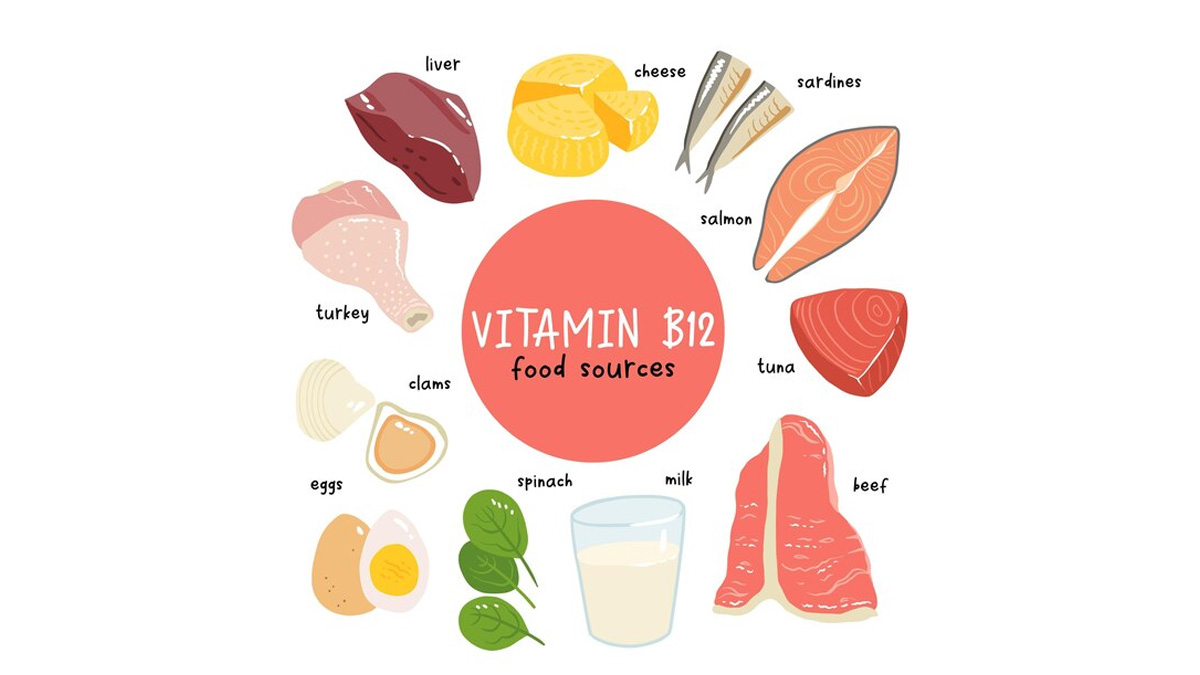
Our body requires nutrients to maintain overall health, including development and carrying out necessary bodily functions. Vitamin B12 plays a crucial role in the production of red blood cells, DNA synthesis, and proper nerve function. It is mainly found in animal products, such as meat, fish, dairy products, and eggs. Its deficiency can lead to anaemia, nerve damage, cognitive impairment, and other health problems. We spoke to our expert Dr Ekta Singhwal, M Sc (Dietician), Ujala Cygnus Group of Hospitals, who listed the normal range of vitamin B12 by age.
Table of Content:-
Normal Range Of Vitamin B12 By Age

Dr Singhwal said, “Vitamin B12 levels can vary by age. She added that what's considered normal can depend on the reference range used by a specific laboratory or healthcare provider.” However, the general guidelines for what is typically considered a normal vitamin B12 range by age is as follows:
- Infants (0-12 months): 200-900 picograms per millilitre (pg/mL)
- Children (1-18 years): 200-600 pg/mL
- Adults (19-64 years): 200-900 pg/mL
- Older adults (65 and older): 200-700 pg/mL
Dr Singhwal added, “These ranges can vary slightly between different sources and may be influenced by factors like diet, genetics, and individual health conditions. It's essential to consult with a healthcare professional to interpret your specific test results and determine if any action, such as dietary changes or supplements, is necessary to address a vitamin B12 deficiency or maintain optimal levels.”
Symptoms Of Vitamin B12 Deficiency

Vitamin B12 deficiency occurs if you don't get enough vitamin B12 in your diet or if your body isn't able to absorb or store enough of the vitamin. Dr Rajkumar, Senior Consultant-Internal Medicine, Indian Spinal Injuries Centre, New Delhi, listed the symptoms of vitamin B12 that you should watch out for:
- Fatigue
- Pale skin
- Tingling or numbness sensation in hands or feet
- Muscle weakness
- Mouth ulcers
- Vision problems
- Sore and red tongue
- Loss of appetite
Risk Factors Of Vitamin B12 Deficiency

An individual is deficient in vitamin B12 if their blood contains fewer than 150 units per millilitre. You can detect vitamin B12 deficiency with the help of a Complete Blood Count (CBC) test. Dr Rajkumar listed the risk factors of vitamin B12 deficiency as follows:
- Vegetarian
- Older adults
- People who have gastrointestinal disorders
- People who have pernicious anaemia
- Infants who are born to vegan women are also at risk
Also Read: Liquid Vitamin B12 Benefits: Know Why And How It Is Beneficial From An Expert
How To Maintain Vitamin B12 Levels

According to StatPearls, the liver stores an abundance of vitamin B12, reducing the chance of shortage. However, hepatic stores are depleted and shortage results when vitamin B12 cannot be absorbed. This can happen because of nutritional insufficiency, malabsorption, or a lack of intrinsic factors.
Food Sources To Increase Vitamin B12 Levels
The best sources of vitamin B12 are animal-based products. This includes:
- Eggs
- Chicken
- Beef
- Organ meat
- Fish (tuna, salmon)
Since the richest source of vitamin B12 is animal products, it becomes difficult for vegetarians to look for alternatives. However, fret not as we list options that you can consider.
- Cheese
- Plant-based milk
- Yoghurt
- Nutritional yeast
- Fortified cereals
- Plant-based meat
- Tempeh
- Cremini mushrooms
[Disclaimer: The information in this article is shared by a registered healthcare professional and is for informational purposes only. Hence, we advise you to consult your expert for a dietary plan catered to your needs and body type.]
Also watch this video
How we keep this article up to date:
We work with experts and keep a close eye on the latest in health and wellness. Whenever there is a new research or helpful information, we update our articles with accurate and useful advice.
Current Version